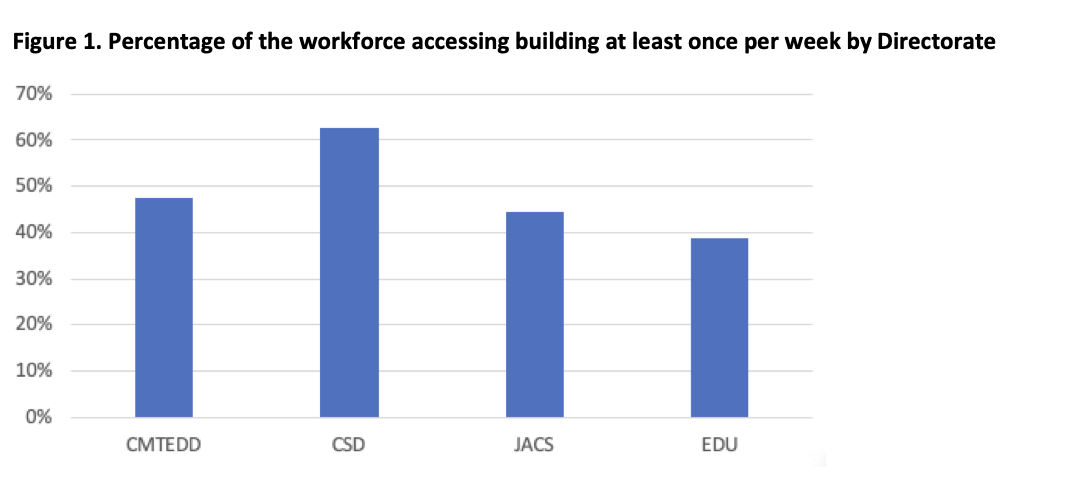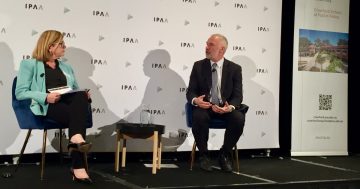
The Territory’s public servants have wholeheartedly embraced the era of flexible working. Photo: Michelle Kroll.
New research shows the ACT’s public servants don’t want to be forced to work at the office unless there’s a reason for it, as they wholeheartedly embrace the era of flexible working.
It follows Chief Minister Andrew Barr arguing earlier this year public servants were not going to be forced to return to the office as “consumer fodder”.
Mr Barr had last year declared the era of 9-5, five days a week working in the office for the ACTPS was over.
The Canberra Liberals had pressed the case for a return to the office to support CBD businesses like cafes, laundromats and newsagents.
Now, public servants say they are overwhelmingly supportive of flexible working arrangements but continue to hold some concerns about being expected to work when unwell or be available all day.

Graph showing the percentage of the workforce accessing the building at least once per week by directorate. Photo: Screenshot.
According to a report prepared by the Australian New Zealand School of Government, the ACT Public Service and UNSW Canberra, office attendance varied by directorate.
Public servants were surveyed from December 2021 and June 2022.
Survey participants were strongly resistant to mandatory office attendance as they did not believe it to be operationally necessary.
“I’m … a bit resistant to arbitrary days … If I’m just sitting behind a computer and a lot of my work is computer based, it makes no sense for me to be in an office nine to five … I just don’t see the logic anymore,” one public servant was reported as saying.
Mandatory office attendance was typically determined at a directorate level.
When they did attend the office, public servants had “strong negative perceptions” about hot-desking.
These typically related to noise levels and privacy and being restricted to working in areas with desks clustered to create a joint working space.
Some concerns about working from home arrangements were recorded although the majority were satisfied with work start and finish times as well as being able to take breaks around personal demands.
Researchers found working from home was conducive to productivity but it meant work was more likely to spill over into private time.
The latter could be due to both poor boundaries around work and unrealistic expectations about staff availability.
“For example, in many teams, there is an expectation that individuals will communicate their availability throughout the day, such as being absent for a brief personal commitment,” the report found.
One public servant said they felt as though they could not let their computer go to sleep while reading something as a high level of responsiveness was expected.
Employees under 30 and over 50 did report that they preferred to work from the office, to avoid feelings of social isolation.
Computer data showed workers were likely to be digitally active for an extra hour a day (7.6 hours), compared to 2019 (6.3 hours).
But researchers said this could be reflective of changes in scheduling and types of computer usage as well as actual increases in the number of hours worked per day.
The report’s authors noted more work was necessary to understand flexible working across the entirety of the ACT public service, including looking at frontline service delivery workers such as teachers and nurses.





















